 Your new post is loading...
 Your new post is loading...

|
Scooped by
Gust MEES
|

|
Scooped by
Gust MEES
|
Worldometer is run by an international team of developers, researchers, and volunteers with the goal of making world statistics available in a thought-provoking and time relevant format to a wide audience around the world. Worldometer is owned by Dadax, an independent company. We have no political, governmental, or corporate affiliation.
Trusted Authority
Worldometer was voted as one of the best free reference websites by the American Library Association (ALA), the oldest and largest library association in the world.
We have licensed our counters at the United Nations Conference on Sustainable Development (Rio+20), to BBC News, and to the U2 concert, among others.
Worldometer is cited as a source in over 10,000 published books, in more than 6,000 professional journal articles, and in over 1000 Wikipedia pages. Learn more / En savoir plus / Mehr erfahren: https://www.scoop.it/t/21st-century-learning-and-teaching/?&tag=Big+Data.

|
Scooped by
Gust MEES
|

|
Scooped by
Gust MEES
|
Facebook is suspending a data analytics firm called CubeYou from the platform after CNBC notified the company that CubeYou was collecting information about users through quizzes.
CubeYou misleadingly labeled its quizzes "for non-profit academic research," then shared user information with marketers. The scenario is eerily similar to how Cambridge Analytica received unauthorized access to data from as many as 87 million Facebook user accounts to target political marketing.
The company sold data that had been collected by researchers working with the Psychometrics Lab at Cambridge University, similar to how Cambridge Analytica used information it obtained from other professors at the school for political marketing.
The CubeYou discovery suggests that collecting data from quizzes and using it for marketing purposes was far from an isolated incident. Moreover, the fact that CubeYou was able to mislabel the purpose of the quizzes — and that Facebook did nothing to stop it until CNBC pointed out the problem — suggests the platform has little control over this activity.
Facebook, however, disputed the implication that it can't exercise proper oversight over these types of apps, telling CNBC that it can't control information that companies mislabel. Upon being notified of CubeYou's alleged violations, Facebook said it would suspend all CubeYou's apps until a further audit could be completed.
"These are serious claims and we have suspended CubeYou from Facebook while we investigate them," Ime Archibong, Facebook vice president of product partnerships, said in a statement. Learn more / En savoir plus / Mehr erfahren: https://www.scoop.it/t/21st-century-learning-and-teaching/?&tag=Big+Data.

|
Scooped by
Gust MEES
|

|
Scooped by
Gust MEES
|
Machine learning can drive tangible business value for a wide range of industries — but only if it is actually put to use. Despite the many machine learning discoveries being made by academics, new research papers showing what is possible, and an increasing amount of data available, companies are struggling to deploy machine learning to solve real business problems. In short, the gap for most companies isn’t that machine learning doesn’t work, but that they struggle to actually use it.
How can companies close this execution gap? In a recent project we illustrated the principles of how to do it. We used machine learning to augment the power of seasoned professionals — in this case, project managers — by allowing them to make data-driven business decisions well in advance. And in doing so, we demonstrated that getting value from machine learning is less about cutting-edge models, and more about making deployment easier. Learn more / En savoir plus / Mehr erfahren: https://www.scoop.it/t/21st-century-learning-and-teaching/?&tag=machine+learning

|
Scooped by
Gust MEES
|
Big data is revolutionizing the way businesses gather and analyze data. Ultimately, it is optimizing the speed and efficiency of the decision making process. While advanced analysis tools bolster the information gathering and analysis of data, purely numerical models can be difficult for anyone who isn’t an IT guru to read.
Visualization tools take the data gathered by your company and make it palatable. Analyses can be difficult to comprehend, but once it is put into context through the use of visual aids like length, position, size and color, the outputs no longer look like hieroglyphs. The proper big data visualization tool can create visuals based on human preference and perception. That’s right, it even analyzes data to decide how to best present data to you.
By putting statistics into pictorial format, it allows those you to make tough business and marketing decisions by helping you see analytics like IT specialists. Visually appealing data enables you to identify trends and have a better grasp of previously unnoticed causes and effects. Infographics, geographic maps, and enhanced pie and bar graphs and time-series charts can bring to life to show data in real-time. Learn more / En savoir plus / Mehr erfahren: https://www.scoop.it/t/21st-century-learning-and-teaching/?&tag=Big+Data...

|
Scooped by
Gust MEES
|
Everyday, there are 4 million blog posts, 100,000 news articles and 500,000 hours of video published on the Internet. A wealth of information and knowledge. A wealth of information and knowledge that is lost for most companies, at least for the most part.
Lost?
Step 1: content curation
Not entirely. Thanks to content curation technology, the Web can now be filtered. With content curation tools and platforms such as Scoop.it (among others of course), we can use more or less sophisticated ways to filter this huge amount of content that is published daily to zoom in on what matters to us. Good content curation technology is essential. It saves people a huge amount of time looking for content to share for marketing purposes or information that helps their organization make better decisions. And perhaps as importantly, without these filters, we would just be able to search – not discover. We would still find answers to what we don’t know but we wouldn’t know what we don’t know.
But until recently, all the solutions we’ve offered to deal with information overload – ours included – have revolved around the same basic idea: more – or more sophisticated – filters. Learn more / En savoir plus / Mehr erfahren: https://www.scoop.it/t/21st-century-learning-and-teaching/?&tag=Curation

|
Scooped by
Gust MEES
|
Depuis un certain temps, le terme "Big Data" est sur toutes les lèvres. Qu'est-ce qui se cache derrière ce terme ? Dans ce dossier, BEE SECURE expliquera ce que sont ces "grosses données", comment ces montagnes de données sont utilisées et quel est leur impact sur notre quotidien.
"Big Data" signifie littéralement "grosses données". Il s'agit de quantités de données qui sont trop grandes, trop complexes, trop éphémères et ne pas assez structurées pour l'exploitation à l'aide d'un traitement manuel des données (p.ex. lecture d'une valeur d'un tableau Excel). Le "big" dans Big Data se rapporte à trois dimensions :
Volume (volume de données) : De combien de données s'agit-il ?
Velocity (vitesse) : Avec quelle vitesse les données sont-elles générées, déplacées et à nouveau modifiées ?
Variety (variété) : Quelles sont les différentes sources des données ? Quels différents types de donnée existent-ils ?
Le terme francophone serait "mégadonnées", mais celui-ci n'est que très rarement utilisé dans les médias, raison pour laquelle nous utiliserons également le terme anglais Big Data.
Le terme désigne non seulement les quantités de données en soi, mais également les technologies nécessaires pour les collecter et traiter : par exemple, pour les visualiser ou les préparer d'une autre façon pour qu'elles soient compréhensibles pour les êtres humains.
L'avancée technologique a permis de stocker des quantités de données toujours plus importantes. Dans les années 90, des disquettes d'une capacité de stockage de seulement 1,4 MB et des disques durs avec quelques centaines de MB étaient la norme, tandis qu'aujourd'hui des clés USB avec plusieurs gigabits sont distribuées comme gadgets publicitaires et des disques durs avec plusieurs téraoctets sont intégrés dans des ordinateurs standards. Pour faire court : ce n'est plus un problème aujourd'hui de stocker une grande quantité de données - grâce à des "clouds storage", il ne vous faut même plus de disques durs physiques chez vous, il est possible de louer des espaces en ligne partout dans le monde. En même temps, la capacité du processeur a également augmenté, de sorte qu'il est possible de traiter des quantités de données toujours plus importantes.
D'où viennent les données du Big Data ?
De manière générale, les données considérées comme "Big Data" peuvent venir de tous les domaines de vie imaginables pour lesquels des données sont nécessaires. De manière générale, nous ne devons pas oublier en tant qu'utilisateurs que toutes les données qui peuvent être collectées seront en effet collectées. La liste suivante n'est donc en aucun cas exhaustive, mais elle offre un aperçu des sources de données du Big Data : Learn more / En savoir plus / Mehr erfahren: https://www.scoop.it/t/21st-century-learning-and-teaching/?&tag=Algorithm https://www.scoop.it/t/21st-century-learning-and-teaching/?&tag=Big+Data...

|
Scooped by
Gust MEES
|
Big data analytics can play a crucial role in helping patients get healthcare at a lower cost.
Today, healthcare costs are much higher than they should be and have been growing steadily over the past 20 years. In fact, according to a study by McKinsey, healthcare expenses represent nearly 17.6% of United States’ GDP. Due to the rising cost of healthcare, it’s time to look at smart, data-driven ideas.
From autonomous cars to Internet of Things, big data has percolated almost every industry. It’s no surprise that the healthcare industry, with its large amount of data, is on the verge of big data-driven transformation, perhaps more than any other field.
Healthcare analytics has the potential to reduce treatment costs, predict outbreak of epidemics as well as preventable diseases and improve the quality of life. Here are 5 examples of how big data analytics in healthcare can help save lives. Learn more / En savoir plus / Mehr erfahren: https://www.scoop.it/t/21st-century-learning-and-teaching/?&tag=Big+Data...

|
Scooped by
Gust MEES
|
À l’ère du Big Data, l’intelligence collective des êtres humains permet de générer de nombreuses données pour résoudre certains des principaux problèmes de l’humanité. De même, elle permet d’analyser certaines données plus efficacement que les algorithmes informatiques. Découvrez la relation étroite entre intelligence collective et Big Data.
Intelligence collective : définition
La notion d’intelligence collective désigne une intelligence de groupe, ou une intelligence partagée émergeant de la collaboration, des efforts collectifs ou de la compétition entre plusieurs individus. Cette intelligence collective permet de prendre des décisions par consensus. Les systèmes de vote, les réseaux sociaux, et les autres méthodes permettant de quantifier l’activité de masse peuvent être considérés comme des intelligences collectives.
L’intelligence collective peut être perçue comme une propriété émergente de la synergie entre le savoir offert par les données, les logiciels, le hardware informatique, et les experts de domaines spécifiques, permettant de prendre de meilleures décisions au moment opportun.
Plus simplement, l’intelligence collective résulte de l’association entre les humains et les nouvelles façons de traiter l’information. Learn more / En savoir plus / Mehr erfahren: https://www.scoop.it/t/21st-century-learning-and-teaching/?&tag=Intelligence+collective

|
Scooped by
Gust MEES
|
Manche sind genervt von ihnen, andere können gar nicht genug bekommen – Tests auf Facebook, die das eigene Profil analysieren und dabei Daten sammeln. Wie soll ich mit solchen Tests umgehen? BEE SECURE rät:Unzureichende Datenschutzerklärungen, intransparente Informationen und zweifelhafte Geschäftsmodelle bestimmen die „Szene“ dieser Tests. Da diese Tests so gut wie keinen Mehrwert haben, sondern vermutlich sowieso nach dem Zufallsprinzip arbeiten, empfiehlt BEE SECURE, sie zu meiden. Die Risiken, dass die eigenen Daten verkauft oder gar in Fake-Profilen verwendet werden, sind größer als der Nutzen, den diese „lustigen“ Tests bieten. Learn more / En savoir plus / Mehr erfahren: https://www.scoop.it/t/21st-century-learning-and-teaching/?&tag=Big+Data...

|
Scooped by
Gust MEES
|
السّلام عليكم ورحمة الله وبركةه SEMANTICS Lecture : Dian, S.Pd., M.Pd. - 2. SYAIMA FAUZIYAH ANWARI Definition of SEMANTICS and The Study Word Meanings
- 3. Definition of SEMANTICS What is semantics?
- 4. What is Semantics? • The study of meaning of words, phrases, and sentences. – Lexical semantics (words and meaning relationship among words) – Phrasal/ sentential semantics (syntactic units larger than a word) • What a speaker conventionally means (objective or general meaning)- not what he is trying to say (subjective or local meaning)
- 5. Semantics is a sub discipline of linguistics which focuses on the study of meaning. Semantics tries to understand what meaning is as an element of language and how it is constructed by language as well as interpreted, obscured and negotiated by speakers and listeners of language.
- 6. How can we describe the meaning of different words? • Three types of semantic analysis: –Words as ‘containers’ Semantic features – ‘roles’ they fulfill Semantic roles – ‘relationship’ with other words lexical relation
- 7. Semantic features • Syntactically correct sentences but semantically odd. – The hamburger ate the man. – My cat studies linguistics. – The table listens to the radio • This relates to the conceptual components of the words ‘hamburger, cat & table’ not human.
- 8. Semantic Features • Semantic properties: The components of meaning of a word. • Meaning as collection of properties/features typically with two possible values (+ / -) • Example of componential analysis: baby is [+ young], [+ human], [+animate]
- and so on...
Learn more / En savoir plus / Mehr erfahren: https://www.scoop.it/t/21st-century-learning-and-teaching/?&tag=Semantic-Web
|

|
Scooped by
Gust MEES
|

|
Scooped by
Gust MEES
|

|
Scooped by
Gust MEES
|
Instead, CA persuaded enough people to trust and approve its Facebook app, called “This is Your Digital Life”, that it was able to access, accumulate and allegedly to abuse personal data from millions of users.
That’s because the app grabbed permission to access data not only about you, but about your Facebook friends.
In other words, if one of your friends installed the app, then they might have shared with CA various information that you’d shared with them.
But how to find out which of your friends (some of whom may be ex-friends by now) installed the app, and how to be sure that they remember correctly whether they used the app or not?
Facebook has now come up with a way, given that it has logs that show who used the app, and who was friends with them.
We used this link:
https://www.facebook.com/help/1873665312923476
After we’d logged into Facebook, we got the result we hoped for:
Learn more / En savoir plus / Mehr erfahren: https://www.scoop.it/t/21st-century-learning-and-teaching/?&tag=Big+Data...

|
Scooped by
Gust MEES
|
Facebook hat einen weiteren Datenanalyse-Anbieter suspendiert. AggregateIQ habe eine Rolle beim Brexit-Referendum gespielt, heißt es. Außerdem bestünden Verbindungen zur Muttergesellschaft von Cambridge Analytica, SGL.
Im Facebook-Datenskandal hat das Online-Netzwerk eine weitere Firma suspendiert, die eine Rolle beim Brexit-Referendum gespielt hatte. Bei dem kanadischen Datenanalyse-Anbieter AggregateIQ hatten die Befürworter des Austritts Großbritannien aus der Europäischen Union mehrere Millionen Pfund ausgegeben. Ein Facebook-Sprecher erklärte am Wochenende, Auslöser für die vorläufige Suspendierung seien jüngste Berichte über Verbindungen zwischen AggregateIQ und der Muttergesellschaft der Datenanalyse-Firma Cambridge Analytica, SGL.
Learn more / En savoir plus / Mehr erfahren: https://www.scoop.it/t/21st-century-learning-and-teaching/?&tag=Big+Data.

|
Scooped by
Gust MEES
|
For some people, artificial intelligence still makes them feel a little…uneasy. It’s often depicted as sinister-looking robots who will take over our lives and our jobs, or even replace humanity.
The reality is, we are already in an age in which AI is infused into our everyday lives in ways that augment rather than replace people. Digital assistants such as Cortana can find you the closest restaurant, dictate a text to your friend, manage your email inbox and even help you create more beautiful PowerPoint presentations. Whether you realise it or not, AI is an integral part of all these interactions. And while it’s not something you can often see or touch, I bet you’re already experiencing the benefits of AI every day.
So, how does AI technology actually work? AI is a machine’s ability to recognise images and words, learn and reason in ways that are similar to people. Data is the fuel for AI, and our world is awash with data as our daily interactions are increasingly digital. AI uses sophisticated algorithms to sort through piles of data, spot patterns and make predictions – tasks that would be repetitive and time-consuming, if not practically impossible, for people to do manually. AI can do this work on our behalf and give us back more of life’s most precious commodity - time. Learn more / En savoir plus / Mehr erfahren: https://www.scoop.it/t/21st-century-learning-and-teaching/?&tag=AI

|
Scooped by
Gust MEES
|
Growing of smart IoT has generated many major impacts on transportation development, of which one underlying big story is the thriving of big data driven smart transportation nowadays. We are moving from IT to data technology (DT) time, and we are entering a “results driven” era in transportation. As the front and center of the smart IoT transformed mobility, transportation data sets grow rapidly while they are increasingly gathered from more connected sensors, devices, actuators in real-world applications. In 2016, over 823.0 million air trip passengers were reported by U.S. airlines and over 25 million public transit trips was generated daily. The data traffic associated with mobility and transportation is estimated to be roughly 0.6 exabytes every month by 2020 (about 9 percent of total US wireless data traffic), and will grow to 9.4 exabytes every month by 2030. Although the quantity of the data available is indeed large, that is not the most striking characteristic of “big data” in the smart IoT era concerning transportation. The challenge in big data driven transportation rarely refers to the large volume or size of data; rather, it often refers to extracting value from data with certain innovative methods, i.e. how to analyze the data and to gather meaningful insights that can be used to inform decisions makers.
Many concurrent novel technologies and employments have emerged within the big data driven smart mobility ecosystem, emanating from the transportation needs of different stakeholders for better safety, reliability, sustainability, and automation.
For public transportation, big data analytics have transformed both the plan and operations phases on planning and demand modeling, predictive maintenance, and event response. New big data tech-savvy has brought more personalized services to public transportation users, such as offering ancillary services to providing recommendations about additional destinations to visit as part of an upgrade to the passenger’s journey, etc. The big data driven smart public transportation influences both automated and human decision-making, which has clearly played a big part in re-energizing public transport network, and has offered plenty of opportunities to improve the public transportation experience with improved reliability and safety. Learn more / En savoir plus / Mehr erfahren: https://www.scoop.it/t/21st-century-learning-and-teaching/?&tag=Big+Data..

|
Scooped by
Gust MEES
|

|
Scooped by
Gust MEES
|
Big data analytics is the process of examining large and varied data sets to uncover hidden patterns, unknown correlations, market trends, customer preferences and other useful information that can help organizations make more-informed business decisions. Big data can be analysed for insights that lead to better decisions and strategic business moves. The Big Data market is expected to grow to $66.79 Billion by 2021, with investment in analytics hardware, software, services and data scientists pouring in.
WHAT ARE THE INFLUENCERS SAYING? Learn more / En savoir plus / Mehr erfahren: https://www.scoop.it/t/21st-century-learning-and-teaching/?&tag=Big+Data...

|
Scooped by
Gust MEES
|
De gros titres, tels que "Algorithmes - les vrais maîtres du monde ?" ou "Les algorithmes influencent-ils notre quotidien ?", sont à la une des journaux, notamment dans le contexte du Big Data. Dans ce dossier, nous expliquerons ce que sont les algorithmes, comment ils fonctionnent et à quoi ils servent. Nous aborderons également les aspects éthiques.
Un algorithme est une instruction ou une règle logique et explicite sur la manière dont un problème est à résoudre, et se compose de différentes étapes exécutées l'une après l'autre ou simultanément. Pour la majorité des algorithmes, une entrée donnée conduit toujours à la même sortie. Dans la plupart des cas, les algorithmes s'appliquent sous forme de logiciels informatiques, mais ils peuvent également être formulés en langage humain. L'exemple le plus illustre d'un algorithme de notre quotidien est une recette de cuisine.
D'où vient le nom ?
Le terme algorithme est dérivé du nom du mathématicien et géographe korasmien Muhammad Ibn Musa al-Khuwarizmi, originaire de la région de l'Iran d'aujourd'hui, qui a passé la majeure partie de sa vie à Bagdad. En 825, il écrit un manuel sur les chiffres indiens et y explique également le fonctionnement des algorithmes. Le livre sur les chiffres, que nous connaissons aujourd'hui sous le nom de "chiffres arabes", a été traduit en latin au 12e siècle. La dernière partie de son nom (al-Khuwarizmi) a été traduite par "Algorismi". Les premiers mots étaient "Dixit Algorismi" (Algorismi a dit), d'où s'est finalement dérivé le terme algorithme.
Learn more / En savoir plus / Mehr erfahren: https://www.scoop.it/t/21st-century-learning-and-teaching/?&tag=Algorithm https://www.scoop.it/t/21st-century-learning-and-teaching/?&tag=Big+Data...

|
Scooped by
Gust MEES
|
Big Data is powerful on its own. So is artificial intelligence. What happens when the two are merged?
Big data is moving to a new stage of maturity — one that promises even greater business impact and industry disruption over the course of the coming decade. As big data initiatives mature, organizations are now combining the agility of big data processes with the scale of artificial intelligence (AI) capabilities to accelerate the delivery of business value. Big Data and AI at MetLifePete Johnson is one of the most experienced executives working in the field of big data and AI within industry today. Having worked in the field of artificial intelligence for a generation dating back to his academic career at Yale University, Johnson now leads big data and AI initiatives as a fellow at MetLife. Johnson previously held positions as senior vice president for Strategic Technology with Mellon Bank and served as the executive vice president and chief technology officer of Cognitive Systems Inc. (CSI), an early artificial intelligence company specializing in natural language processing, expert systems, case-based reasoning, and data mining. CSI was founded by several members of the Yale University faculty in 1981, when Johnson completed his MS in computer science. Johnson, whom I’ve known for over a decade, is a regular participant in a series of executive thought-leadership breakfasts that I host for senior industry executives to share perspectives on topics in big data, AI, and machine learning among their peers. Participants in the most recent executive breakfasts have included chief data officers, chief analytics officers, chief digital officers, chief technology officers, and heads of big data for firms including AIG, American Express, Blackrock, Charles Schwab, CitiGroup, General Electric (GE), MetLife, TD Ameritrade, VISA, and Wells Fargo, among others. As a long-suffering expert in the field of artificial intelligence, Johnson observes three critical ways in which big data is now empowering AI: - Big data technology — We have the ability now to process huge quantities of data that previously required extremely expensive hardware and software, or “commodity parallelism.”
- Availability of large data sets — ICR, transcription, voice and image files, weather data, and logistics data are now available in ways that were never possible in the past; even old “paper sourced” data is coming online.
- Machine learning at scale — “Scaled up” algorithms such as recurrent neural networks and deep learning are powering the breakthrough of AI.
Learn more / En savoir plus / Mehr erfahren: https://www.scoop.it/t/21st-century-learning-and-teaching/?&tag=AI https://www.scoop.it/t/21st-century-innovative-technologies-and-developments/?&tag=AI https://www.scoop.it/t/21st-century-learning-and-teaching/?&tag=machine+learning https://www.scoop.it/t/21st-century-learning-and-teaching/?&tag=Deep+Learning

|
Scooped by
Gust MEES
|

|
Scooped by
Gust MEES
|
About The Big Data & Analytics Hub Brought to you by IBM, the Hub is the home for current content and conversation regarding big data and analytics for the enterprise from thought-leaders, subject matter experts and big data practitioners. Please take a moment to explore all the Hub has to offer, including: Learn more / En savoir plus / Mehr erfahren: https://www.scoop.it/t/21st-century-learning-and-teaching/?&tag=Big+Data... https://www.scoop.it/t/21st-century-learning-and-teaching/?&tag=IBM
|



 Your new post is loading...
Your new post is loading...


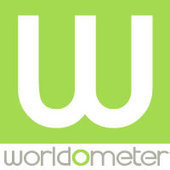
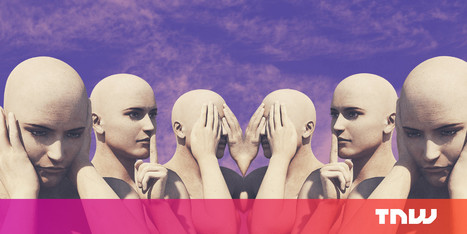


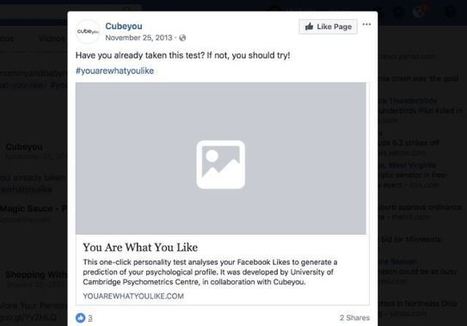


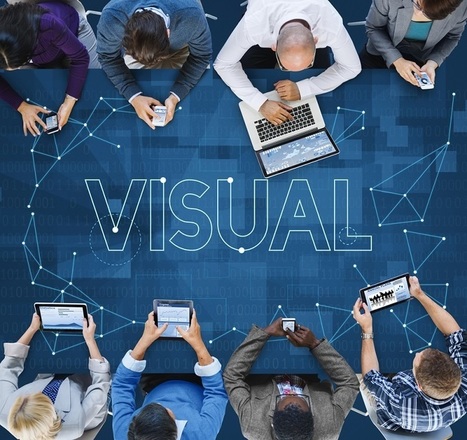
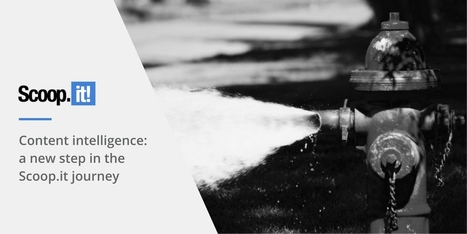
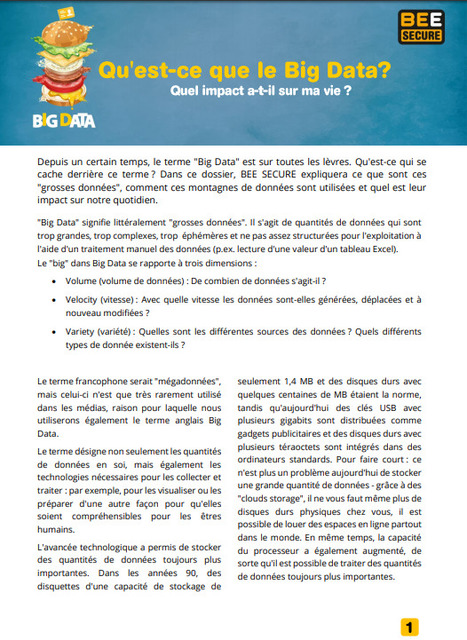
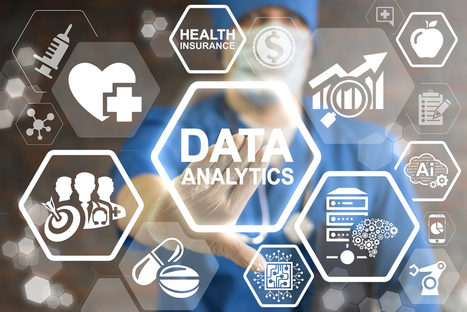





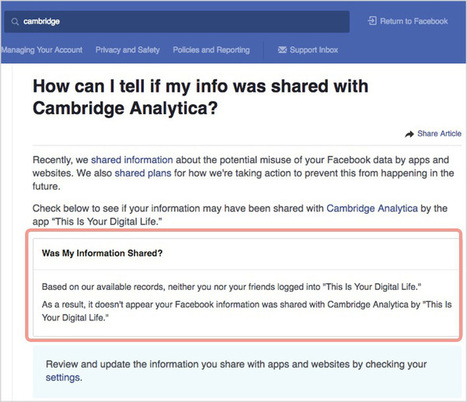




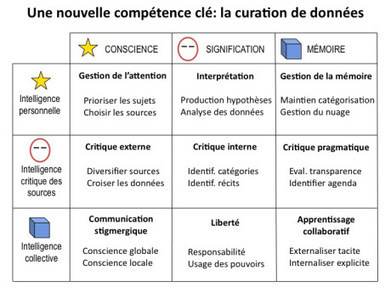
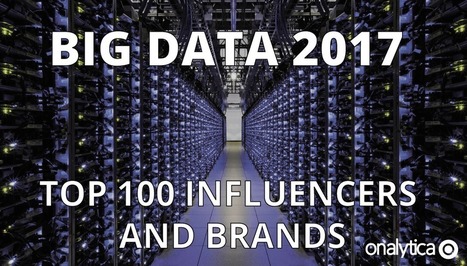
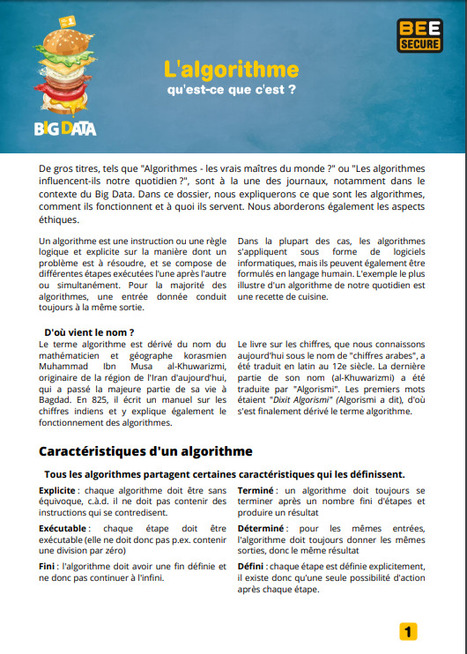






Track COVID-19/CoronaVirus Outbreak in your country using ESP8266 and ThingSpeak
Learn more / En savoir plus / Mehr erfahren:
https://www.scoop.it/t/21st-century-learning-and-teaching/?&tag=ARDUINO
https://www.scoop.it/topic/21st-century-learning-and-teaching/?&tag=coronavirus
https://www.scoop.it/topic/21st-century-learning-and-teaching/?&tag=ESP8266+WiFi+Module